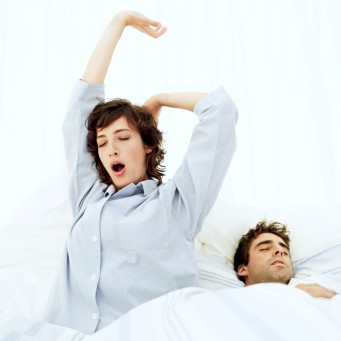 I think it’s safe to say that we can all agree on one thing: A good night of sleep can make for a happy person. A recent survey in Australia proves just that. This survey, dealing with 2000 Australians, found that a good night’s sleep makes a happier life so much more likely. In other words, sleep and wellbeing go hand in hand.
I think it’s safe to say that we can all agree on one thing: A good night of sleep can make for a happy person. A recent survey in Australia proves just that. This survey, dealing with 2000 Australians, found that a good night’s sleep makes a happier life so much more likely. In other words, sleep and wellbeing go hand in hand.
To back up this claim, the Australian Unity Wellbeing Index states that those with lower wellbeing levels are the people who sleep less than six hours a night (compared to those who sleep seven to nine hours a night). However, it’s interesting to note that when people sleep for more than ten hours a night, their levels of satisfaction noticeably drop off. Australia’s Deakin University came out with a report on such results, The Wellbeing of Australians – Quantity and Quality of Sleep. The report covered a study in which thirty percent of the subjects slept for seven hours a night while the other two-thirds got between seven and nine hours of sleep. The study found that people who tend to sleep for more than ten hours a night usually find themselves struggling with a lack of purpose in their lives. On the contrary, people who can only get at most seven hours of sleep a night are usually stressed out.
Here’s why: Sleeping six hours a night—in other words, not getting enough sleep—can significantly reduce levels of satisfaction when it comes to health and safety. This may lead to higher levels of anxiety, which can all be traced back to a lack of sleep. At the same time, sleeping for too long could be an indicator of depression or sleep apnea. We find that the takeaway message here is that although sleep and wellbeing go hand in hand, it’s important to add moderation to the mix. For the sake of your health and wellbeing, it’s important to find that sweet spot in sleep—don’t sleep too much, but at the same time, don’t sleep too little!

